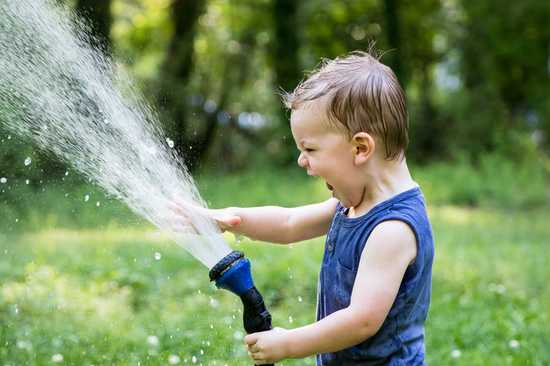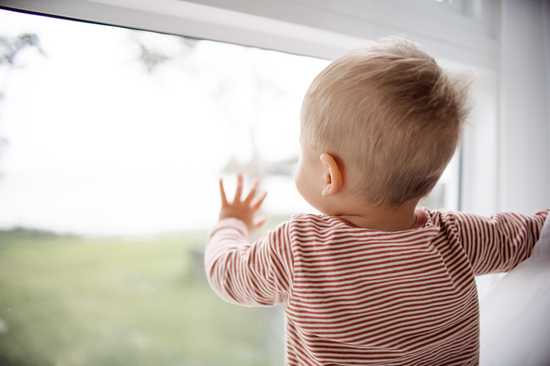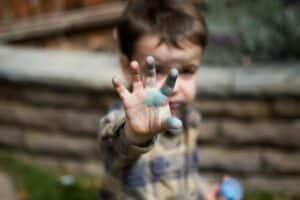It’s normal for babies to cry, but when does crying become a problem? For some children, it seems they cry over everything. If this is the case with your child, don’t worry – you’re not alone. This can be a difficult behavior to deal with, but there are ways to help your child learn how to handle their emotions healthily.
In this blog post, we will discuss the causes of excessive crying and offer tips on how to deal with a child that cries over everything positively.

What Is It That Makes Some People More Sensitive Than Others?
There are a variety of factors that can contribute to a child’s feelings. For example, it could be due to genetics, brain chemistry, or even exposure to certain environmental factors.
Many highly sensitive children are successful in a wide variety of fields. The key to dealing with a sensitive child is first to understand why they’re feeling upset. Once you know the root cause of their tears, you can begin working on finding a solution. For example, if your own child is crying because they’re hungry, the obvious solution is to feed them.
Your emotional child may be naturally more sensitive because of their DNA, even if they seem to cry more than usual over obvious little things. According to research at Harvard University, infants who were the most distressed by new noises and unknown persons at 16 weeks old had highly tuned emotional regulation skills as they got older.
How To Deal With A Child That Cries Over Everything?
Don’t Let Their Emotional Outbursts Overwhelm You
Toddlers have enormous feelings and express these powerful emotions in the form of even more forceful expressions. This might range from bliss to agony in a matter of seconds.
While you may have a sensitive or happy toddler, some can handle their own feelings better than others. While other toddlers may be prepared for new places and faces, your toddler might be more emotional. This implies that you’ll need to pay extra attention to what you do and say to avoid irritation and your toddler’s crying uncontrollably for no reason.
Communication
They’re at a crucial stage in their development when they gain the unique power to understand the vast majority of what you say but only limited ability to vocalize it back to you. This language barrier is a frequent cause of your toddler’s crying.

Big Life Events
Toddlers are highly influenced by their environment and the people around them. You may often see qualities of yourself in your overly sensitive child as they absorb what you do and say.
Children are imitators, and they will learn both your good habits and bad habits. Similarly, they will also be influenced by the external stresses that you experience in your life. Because they are so young, their minds aren’t yet capable of the complex emotional storage that our adult brains are.
It’s too easy for your toddler to become overwhelmed, leaving them with little means to release their feelings. It is this emotional assault that can cause your youngster to be unhappy, furious, and frightened. Crying is simply a natural and beneficial response to this condition.
Take some to think about your present environment and see whether any major changes could be causing your child to be more agitated.
A Safe Place
Toddlers require a lot of attention and want to be able to express themselves in a safe environment. You’ll frequently find your toddler perplexed about how to release pent-up emotions. You’ll likely take the brunt of the good and bad emotions because you’re the nearest person to them.
Providing a unique secure place for children to let out their emotions is the key to teaching them how to stop crying about everything. A warm hug and an ear they may vent their frustrations should be sufficient.
It can be helpful to designate a special place in your house where your toddler can go to release some energy and emotions. This space should be free from distractions, and you should allow them to express themselves in any way they see fit.
Small Games, Big Emotional Rewards
If you have a sensitive toddler who seems to cry and whine more often than they laugh, it’s important to try and promote happy games or food items like Tums. Promoting laughter is key in helping them cope with sadness.
Each step your toddler takes is a stepping stone that will lead to recognition and acceptance, which should, in turn, stimulate more happiness and joy.
Talk To Other Parents
Parents must compare notes and share insights with other parents of comparable ages. Especially if you don’t know how to deal with a child that cries over everything.
Talking to others about your day-to-day challenges can be helpful. You can use this time for small talk or, if you want, go more in-depth and ask for advice and strategies.
When you communicate with other parents about the expectations, frustrations, and triumphs of parenting, you gain valuable perspectives that can help inform future decisions. You may also find yourself better equipped to empathize with and be patient toward your child due to this positive reinforcement from others in similar positions.
It can be tough to know how to deal with a child who cries at the drop of a hat,
but if you use these strategies, you’ll be able to reduce the amount your toddler cries.
This will lead to more fun and laughter for everyone in the family!
Allergies
It’s common for toddlers to have allergies, which might help explain why they cry and whine.
- Eczema.
- Pollens.
- Food allergy.
If your youngster has just been introduced to a new type of environment, they may suffer from an allergic reaction, which might impact their disposition.

Frequently Asked Questions
Q1:What does it imply when a kid wails for every little thing?
Ans: It’s not unusual for babies to cry all the time, especially if they have a speech delay. They’re also experimenting with reactions and learning how to deal with their emotions independently.
Q2: What to say instead of stop crying?
Ans: “I see that you’re feeling ___.”
- “It sounds like you’re feeling ___. Can you tell me more about that?”
- “That must have been hard for you.”
Q3: How to handle my 10-year-old daughter who cries over anything?
Ans: The first step is to try and figure out the root cause of her tears. Is she feeling overwhelmed or stressed about something in particular? If you can’t seem to get to the bottom of it, consider talking to her pediatrician or a therapist who specializes in children.
Q4: What is the best way to deal with a sudden uncontrollable crying toddler?
Ans: First, try to figure out the reason for the crying. If the crying is coming out of nowhere, try to distract your toddler with a toy or a game.
Q5: My 2-year-old is crying and whining. What to do?
Ans: Is your child tired, hungry, or needs a diaper change? If so, take care of that first. If the crying is coming out of nowhere, try to distract your toddler with a toy or a game. If that doesn’t work, try holding them and comforting them until they calm down.
Conclusion
Crying is a normal part of childhood development, but it cannot be easy to deal with if it’s happening all the time. If you’re unsure how to deal with a child that cries over everything, take deep breaths, try examining their general health, talking to other parents, and distracting them with toys or games. If the crying persists, consider talking to their pediatrician or a therapist for coping strategies.







